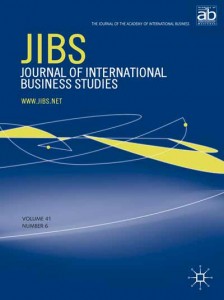 Reiche, B. Sebastian; Kraimer, Maria L.; Harzing, Anne-Wil, “Why Do International Assignees Stay?: An Organizational Embeddedness Perspective”, Journal of International Business Studies, Vol. 42, No. 4, 2011, pp 521 – 544
Reiche, B. Sebastian; Kraimer, Maria L.; Harzing, Anne-Wil, “Why Do International Assignees Stay?: An Organizational Embeddedness Perspective”, Journal of International Business Studies, Vol. 42, No. 4, 2011, pp 521 – 544
We apply an organizational embeddedness perspective to examine international assignees’ retention with the organization. Specifically, we hypothesize that assignees’ social ties within and their perceived fit with the host unit positively relate to two sacrifices with leaving the organization: their firm-specific learning during the assignment and their perceived career prospects in the organization. Perceived career prospects is expected to predict subsequent retention, moderated by firm-specific learning. These hypotheses are tested using a sample of 143 inpatriates in ten German multinationals with retention measured two and four years later. We show that inpatriates’ trusting ties with HQ staff and their fit with the HQ positively relates to their firm-specific learning and their perceived career prospects, and that the latter predicts their retention two and four years later. Perceived career prospects mediates the direct relationship between inpatriates’ fit with the HQ and inpatriate retention, and the indirect relationship between inpatriates’ trusting ties with HQ staff and their retention. Furthermore, inpatriates’ firm-specific learning mitigates the effect of perceived career prospects on retention decisions two years later. We contribute to the organizational embeddedness, careers, and international business literatures by explaining when and how facets of organizational embeddedness relate to assignee retention.

